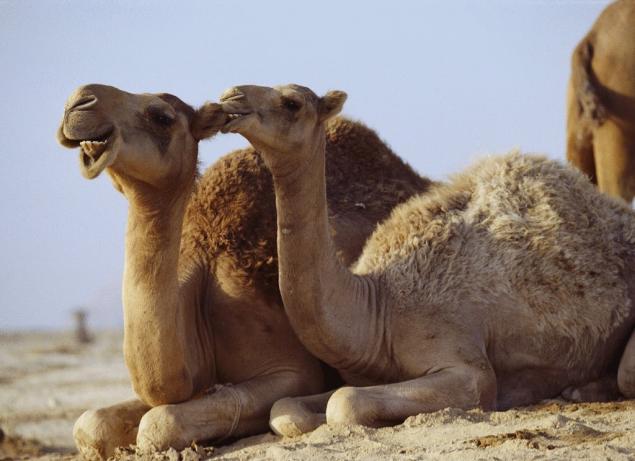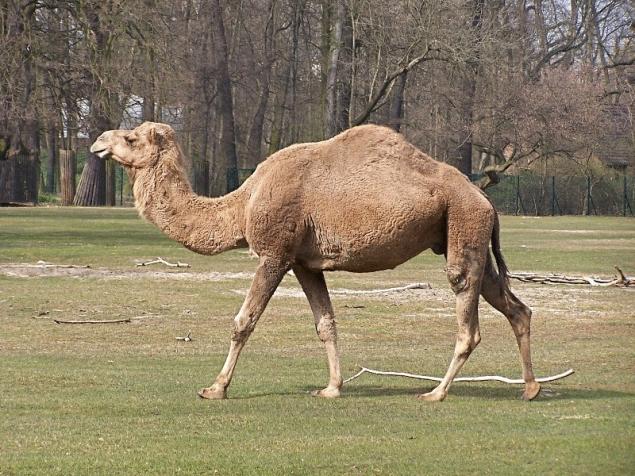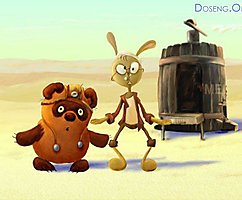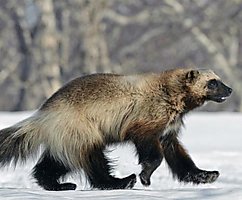One-humped camel
 Bashny.Net
Bashny.Net
One-humped camel, or dromedar, or Arabian — mammalian species, one of the members of the family of camelids that are related along with the two-humped camel (the Bactrian camel) to the genus actually camels. In the past countless herds of wild dromedaries roamed the deserts of North Africa and the Middle East, but nowadays can be found only domesticated animals. In the modern world DROMEDARY common in many regions of Asia and Africa as a pet for carrying loads or for riding.

The body length of one-humped camel, covered with a rough coat of sand or brown reaches up to 3.5 meters, and weight reaches up to 700 kg one-Humped camels, known for their endurance, they can long time without food and water, maximizing the fluid in your body, and fat concentrated in the hump of the animal, tolerate high temperature and long passages. This species is very undemanding to food, it can eat thorny and salty plants, swallowing them without chewing.

Special mechanisms in the body of dromedaries minimize fluid loss. Thick wool cover prevents excessive evaporation of the sweat glands are very small, and the animals start to sweat in 40-degree heat.The body temperature in one-humped camel at night falls heavily, and the day the body heats up slowly, which allows the animal to sweat. DROMEDARY camels can do without water (a week under bagged, and a few months — no load). Camels without harm to themselves can experience significant fluid loss, to 40% in volume, but drink the camels very fast, and can quickly compensate for all the lost volume of liquid in the case can in 10 minutes to drink about 100 liters of water. Other mammals are just not able to grasp such a "camel dose" of fluid in such a short time.

The basis of the diet of the DROMEDARY is the dry, often prickly desert plants. The hump on the back contains fat reserves that the body gradually the camel uses for energy. Fluid camels is stored not in the hump, and the stomach. During a particularly dry season one-humped camel able to lose more than 25% of its weight without dying of thirst or hunger.
Source: /users/117

The body length of one-humped camel, covered with a rough coat of sand or brown reaches up to 3.5 meters, and weight reaches up to 700 kg one-Humped camels, known for their endurance, they can long time without food and water, maximizing the fluid in your body, and fat concentrated in the hump of the animal, tolerate high temperature and long passages. This species is very undemanding to food, it can eat thorny and salty plants, swallowing them without chewing.

Special mechanisms in the body of dromedaries minimize fluid loss. Thick wool cover prevents excessive evaporation of the sweat glands are very small, and the animals start to sweat in 40-degree heat.The body temperature in one-humped camel at night falls heavily, and the day the body heats up slowly, which allows the animal to sweat. DROMEDARY camels can do without water (a week under bagged, and a few months — no load). Camels without harm to themselves can experience significant fluid loss, to 40% in volume, but drink the camels very fast, and can quickly compensate for all the lost volume of liquid in the case can in 10 minutes to drink about 100 liters of water. Other mammals are just not able to grasp such a "camel dose" of fluid in such a short time.

The basis of the diet of the DROMEDARY is the dry, often prickly desert plants. The hump on the back contains fat reserves that the body gradually the camel uses for energy. Fluid camels is stored not in the hump, and the stomach. During a particularly dry season one-humped camel able to lose more than 25% of its weight without dying of thirst or hunger.
Source: /users/117
Tags
Africa
animal world
one-humped camel
DROMEDARY
Arabian
countless herds of wild dromedaries
Asia and Africa
the endurance of camels
the fat concentrated in the hump
without food or water
See also
Interesting facts about the smartest animals in the world
Eurotrip on a motorcycle or the seven seas
Mood improver wildlife
Representatives of the animal world, opened in 2014
In Prague zoo the completion of the cat's lemurs
Least weasel is the smallest carnivore on the planet

















